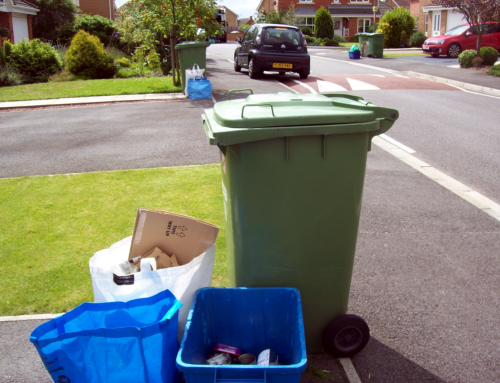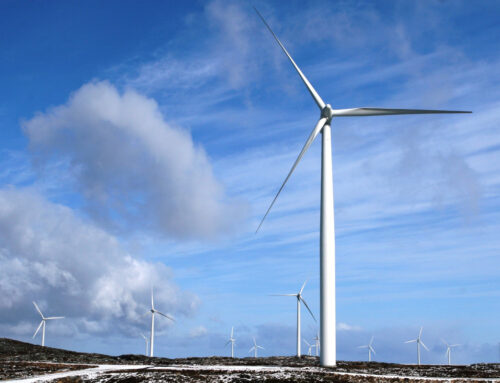The 2001 Enron scandal occurred because the energy company’s financial accounts did not reflect its actual debts and losses. Eventually its shareholders found out, the bubble burst, and Enron became the biggest bankruptcy in corporate history, taking its auditing firm, Arthur Andersen, down too.
Something very analogous is happening with greenhouse gas accounting for electricity consumption (known as “scope 2” emissions), with reporting companies buying renewable energy certificates (RECs) and claiming that their emissions are zero. The big problem with this accounting practice is that reporting “zero tCO2” bears no relation to the actual emissions caused by the companies’ electricity consumption – just as Enron’s financial accounts didn’t bear any relation to its actual financial position. What, it might be wondered, is the point of producing greenhouse gas accounts if they don’t reflect actual emissions caused?
Premium rate numbers
Some companies are engaged in this reporting practice with the best of intentions: they genuinely want to increase the amount of renewable generation and believe that their demand for RECs will drive supply. However, there is strong evidence that buying RECs does nothing to cause extra renewable generation – recent articles by Michael Gillenwater make the case clearly – all it does is provide energy companies with a windfall revenue stream for the renewable electricity they would be producing anyway. Purchasing RECs or green tariffs doesn’t affect the amount of renewable generation – and so can’t be a basis for claiming to have caused “zero tCO2”.
If one were to be really critical, it’s likely that some reporting companies are actually complicit in this creative accounting arrangement, as it allows them to seemingly reduce their emissions at very low cost. And who wouldn’t want that? Moreover, once a company has gone down this route, it is difficult to go back. Once you’ve publically announced an impressive reduction target (because you thought you could buy cheap RECs to achieve it), it’s hard to backpedal.
This situation creates the perfect storm for greenhouse gas accounting – as the vested interests of power companies selling RECs, and reporting companies buying them, are aligned – with neither wanting to acknowledge the impending shipwreck!
What has the “ship’s captain” been doing while all this is going on? The Greenhouse Gas Protocol, which has previously produced some of the best standards for greenhouse gas accounting, is reaching the end of a three-year stakeholder engagement process to develop guidance on this issue. What looks worrying however is that the “stakeholders” are to a large extent the energy industry and the reporting companies with the most to lose if the new guidance clamps down on this accounting loop-hole. A public consultation on the Greenhouse Gas Protocol’s draft guidance will commence at the end of March – and offers an opportunity to shout “Look out for the RECs!”.
REC and ruin
Surely government environment agencies have something to say about this? Unfortunately, the US EPA views the voluntary RECs market as a means of (eventually) driving extra renewable supply, and doesn’t have the integrity of greenhouse gas accounting on its radar. Effectively, credible greenhouse gas accounting is being thrown overboard for the sake of a well-intentioned, but unlikely to be fulfilled, renewables policy. Similarly in the UK, Defra is currently proposing to weaken its existing guidance on scope 2 reporting, citing the justificatory fig leaf of supporting the voluntary market for renewable power.

Going to REC and ruin: Renewable Energy Certificates could be sinking the chances of real carbon accounting. Photo by Internationalgreg, via Wikimedia Commons.
The reality is that voluntary demand is vastly exceeded by existing renewable supply, and would need to increase dramatically in order to reach that supply threshold and begin to nudge a small change in renewable capacity. That’s a lot of misreported electricity emissions in the meantime, if we reach the threshold at all. On top of that, if demand reaches the existing supply threshold, RECs will have to start reflecting the true marginal cost of causing extra renewable generation – and the spike in price could well mean that interest in RECs would wither just at the point when they might actually do something!
One may wonder “Does any of this really matter – is it so bad if companies pretend their electricity emissions are zero when really they’re not?”. Here are a few reasons for thinking this is important:
- There is the risk of a backlash against the companies that are making bogus low-carbon claims, including those who bought RECs or other green tariff electricity in good faith.
- There is also likely to be increased scepticism about corporate action on climate change more generally, and the credibility of standard setting bodies such as the Greenhouse Gas Protocol.
- Perhaps most importantly, if a company’s greenhouse gas accounts say that emissions from its electricity consumption are “zero tCO2” then the company (and other stakeholders) will think that no further action is required – what further improvement could be made on emissions that are apparently already zero? Ultimately, Enron-style accounts are bad for communicating, managing and reducing actual emissions – because they don’t tell you what actual emissions are.
Time for REC-consideration
Despite these real dangers, the attraction of windfall profits and cheap (but illusory) greenhouse gas reductions appears to keep the accounting trick alive. The issue was seemingly resolved back in 2008 when the then UK Environment Minister, Hilary Benn, stated “…best practice is expected to be for businesses to use a grid average rate – average rate of carbon emissions associated with electricity transmitted on the national grid – unless their supplier can prove the carbon benefits are additional”. But six years on, the RECs conjuring trick is more popular than ever, with annual misreported electricity consumption found to be nearing 50 million MWhs in the US alone.
If all this talk of RECs has given you that horrible sinking feeling, there are ways to help plug the holes in the reporting system:
- endorse an open letter to the Greenhouse Gas Protocol pointing out the problem:;
- email Defra to highlight the issue (you could try using their online consultation form but the only option is to agree with the proposed changes! I’ve heard of “debate framing”, but surely there is an ombudsman who should look into this?); and
- respond to the Greenhouse Gas Protocol’s forthcoming consultation on the guidance.
Bon voyage!






It’s critical to spot these kinds of slippery slopes before you get going too fast. It’s very attractive to take “rigor short-cuts” when designing programs like RECs, with perfectly honorable objectives. But then you keep sliding, with bad results. Does anyone really think that Enron set out to defraud? In reality they almost undoubtedly slipped into it and by then were trapped.
Great article showing up the “Smoke and Mirrors”! The whole RECs thing makes me despair. Companies are indulging in green-wash and the reporting system is allowing them to get away with it.
I was heartened when I read the words: “there are ways to help plug the holes in the reporting system:” and I will be endorsing the open letter forthwith.
However, the thought of e-mailing Defra gave me cold shiver. Given my personal experience & knowledge of Defra’s double dealing over flooding in Somerset in the last two years I worry that this would be a futile exercise that would elicit a flaccid reply in standard “Gov’t speak” (#weasel words)and no actual practical response.
I will write to them and encourage others to do likewise but to avoid the “rigged” on-line consultation form. As is so often the case, government departments try to go beyond “debate framing” and go all the way to telling you what to think, but just who would the ombudsman be with the remit to look into this?
We need to keep picking this scab and pressing for genuine reforms that bring transparency to the reporting process. I’m sure that corporations and governments alike will drag their heals but we need to raise awareness about the dirty tricks that they are using to cover up their dirty habits.